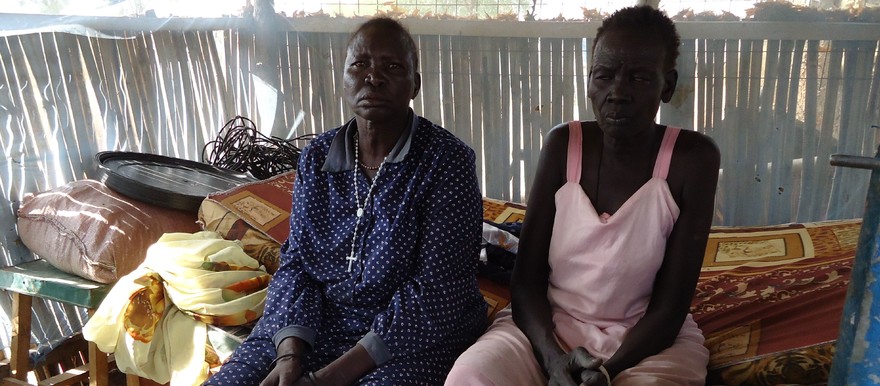A group of elderly Dinka women and one man in Bor, the capital of South Sudan’s Jonglei state, say they were spared by opposition fighters and protected from the kind of atrocities that were committed elsewhere in the town and its surroundings.
In interviews with Radio Tamazuj, the survivors told of how they were protected by Nuer fighters loyal to defected commander Peter Gadet, before the recapture of the city by government troops last month.
As the Gadet forces were withdrawing from the town, they posted guards to prevent allied ‘white army’ fighters from killing the group of six survivors.
Rosa Ayool, one of the group, said when the Gadet troops first captured the town she and her relatives ran to hide in an empty house.
“When the Nuer tribesmen came to the town we went to hide ourselves in an empty house left by a Nuer family in Bor, after they fully controlled the town they started dancing,” she recalled.
“In the evening I and my relatives went to my sister’s house who is blind so that we could stay there together,” Rosa added.
Opinions differed among the Nuer fighters over whether to kill the Dinka family or not, according to the survivor: “When they came to our house they decided to kill us, but one of them said, ‘No we didn’t come here to kill innocent citizens.’”
“Thank God none of us was killed – we were five women and an elderly man,” she explained.
“Finally they pressured us into giving them money in exchange of our life, but later on the same man who pitied us earlier told them, ‘These people are very desperate leave them alone,’” she said.
“They did not leave us until they took five telephones from us, but after a few minutes the god-fearing man who had saved our life came back again and gave us biscuits and water and advised us to look for a safer place instead of hiding in the house which is not secure,” she said.
According to UN human rights workers, many civilians were killed in their homes or while trying to flee Bor in late December. “Targeted killings were committed either on the basis of ethnicity or given an individual’s suspected involvement in or support for the opposition,” the UN stated in a rights report last Friday.
“Information received suggests that such incidents were more common in December, i.e. in the first days of the conflict when opposition forces and then Government forces controlled Bor town,” the report attested.
Photo: Two women who survived in Bor throughout December 2013 and January 2014 (Radio Tamazuj)




